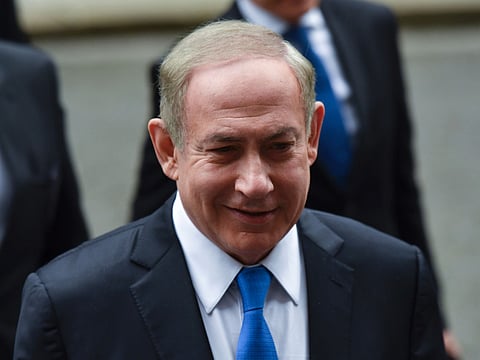Condemnations without a bite
The blatant disregard for international law and the perpetuation of crimes against humanity that the Israelis are embroiled in make UN resolutions worthless

In December 2016, the United Nations Security Council had voted in a resolution that called on Israel to end colonies in Occupied Territories.
The Egyptian-sponsored resolution was very direct. It demanded that Israel “immediately and completely cease all colony activities in the [Occupied Territories], including [occupied] East Jerusalem” and said the establishment of colonies by Israel had “no legal validity and constitutes a flagrant violation under international law”. What was remarkable about this resolution was that it was the first time in recent memory that the United States did not veto the call against Israel, choosing instead to abstain from voting.
As has become customary with Israeli policies, Israeli Prime Minister Benjamin Netanyahu refused to recognise and honour the UN resolution demanding the halt of colony activity by Israel in Occupied Territories. “Israel rejects this shameful anti-Israel resolution at the UN and will not abide by its terms,” said Netanyahu.
Following the vote, the Saudi government said that “the Kingdom hopes the resolution will contribute to reviving the peace process in the region ... which will result in the establishment of an independent Palestinian state with East Jerusalem as its capital”.
Jordan, one of the few Arab states to maintain diplomatic ties with Israel, lauded the “historic” resolution, saying the vote paved a way for a two-state solution. “This historic decision expresses the consensus of the international community on the illegality of Israeli colonies and reaffirms the Palestinian people’s historic right to live in Jerusalem and its historic lands,” stated Mohammad Al Momani, Jordan’s Information Minister.
Less than a month later, the Jordanian government condemned the Israelis for their failure to abide by the UN resolution. The Jordanian Minister of State for Media Affairs and Communications and government spokesman said that Jordan denounced this action, along with the most recent announcement from Netanyahu regarding the continuing colony policy, which, the statement concluded, undermines the efforts of reviving the peace process and the return of Palestinians and Israelis to the negotiating table.
“The Jordanian government has condemned all Israeli actions that are aimed at continuing its colony policy, which, a statement said, represent a clear disregard for international law and undermine the peace process in the region, being a flagrant violation of the rights of Palestinians and total disregard for UN Security resolutions.”
Just last week, Qatar condemned Israel’s approval to build thousands of new colony units in the Occupied Territories, including occupied Jerusalem. In a statement last Wednesday, the Ministry of Foreign Affairs said that the Israeli Knesset’s adoption of colony legislation law “is a flagrant violation of international resolutions and a blatant attack on the rights of the Palestinian people”. It said the continuation of Israeli violations would undermine efforts to implement the two-state solution. It called on the international community to take necessary measures to compel Israel to halt its colony policy.
In spite of international condemnation, the Israeli policy of illegal expansion at the expense of the lawful Palestinians continues. Resolutions adopted by the UN mean nothing if they happen to fall on deaf ears. The blatant disregard for international law and the perpetuation of crimes against humanity that the Israelis are embroiled in make such condemnations worthless.
While countries like Syria, Iran and North Korea are singled out and brought to the carpet for their atrocities, the Israelis escape such forceful and vocal censure. Israel murders Palestinian civilians in cold blood daily. The Israelis routinely bulldoze Palestinian homes to make way for illegal colonies. The Israelis deliberately target women and children with sniper fire. The Israelis daily round up innocent Palestinians and imprison them without cause. The Israelis routinely cut off food, water and medical supplies to the Palestinians. And yet their growing crimes escape global attention?
In fact, apologists from within various governments chose to either dismiss or explain away their illegal actions and blatant crimes as “nothing to warrant serious worry”. Or is it because of cowardice or an approval of Israeli actions that allows governments to look the other way?
The Israelis are not interested in a just and lasting peace that will bind them to international norms of behaviour. They want to be free to do whatever they wish on whoever they want to and whenever they desire. Today, it is the unfortunate Palestinians who are at risk of losing it all. Tomorrow, others in the region will be undeniably targeted by this never-ending Israeli appetite for land-encroachment and related atrocities. And for the victims, it may be too late. They have waited for too long for the world to sit up and take note.
Tariq A. Al Maeena is a Saudi socio-political commentator. He lives in Jeddah, Saudi Arabia. You can follow him on Twitter at www.twitter.com/@talmaeena.



